The European Neighbourhood Instrument (ENI)
EU and Neighbours: evolving relations
Cooperation, peace and security, mutual accountability and a shared commitment to the universal values of democracy, the rule of law and respect for human rights, are the founding principles of the special relationship between the EU and the Neighbourhood countries of the East and the South.
The aim of that partnership should be “to establish an area of prosperity and good neighbourliness, founded on the values of the Union and characterized by close and peaceful relations based on cooperation”, according to the Treaty on European Union. Since it was launched, in 2004, the European Neighbourhood Policy (ENP) has been strengthening relations, bringing tangible benefits to both the EU and its Neighbourhood partners, including the introduction of regional initiatives and support to democratisation.

The ENI
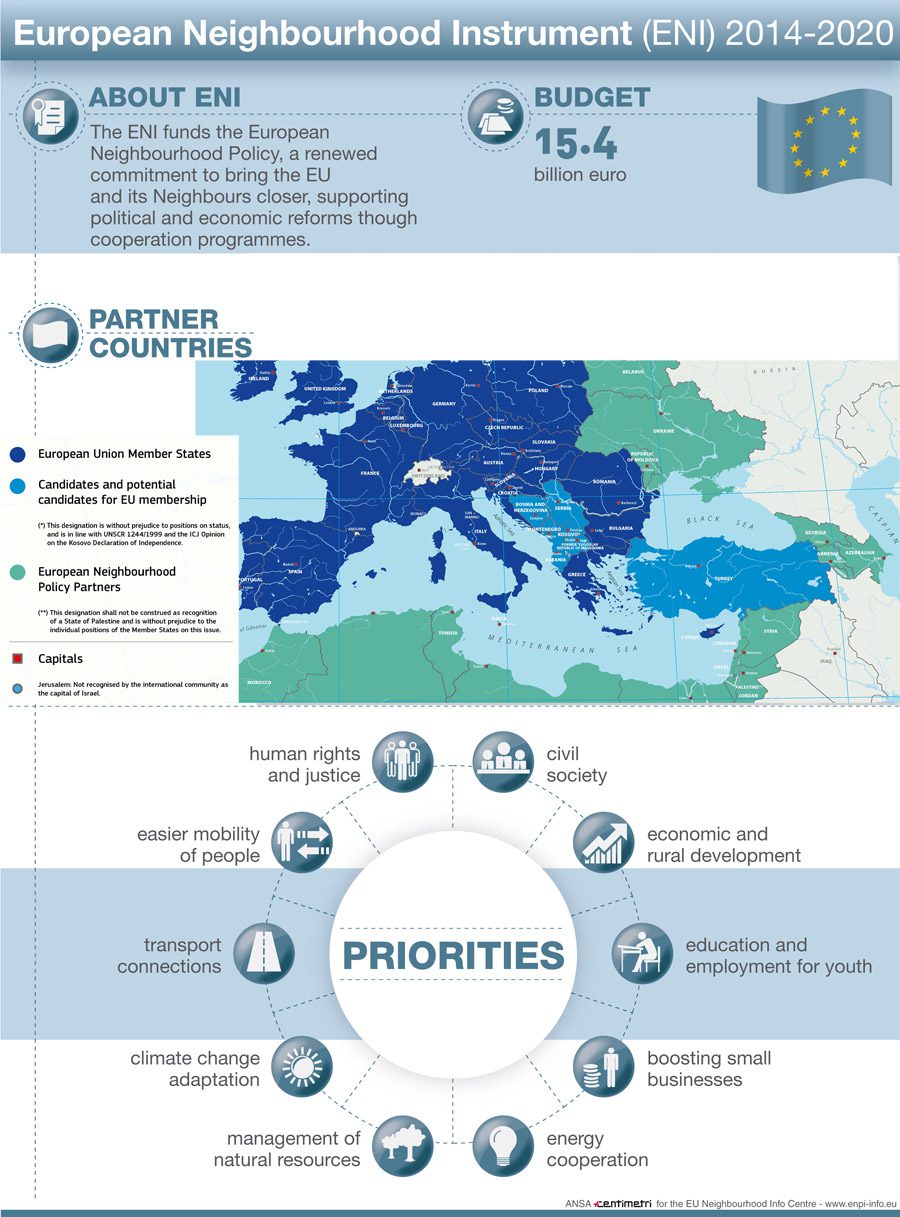
The ENI – what’s new?
- Become faster and more flexible, reducing the complexity and length of the programming process so that the relevance of the assistance is not undermined;
- Offer incentives for best performers through the more-for-more approach that allows the EU to increase its support to those partners that are genuinely implementing what has been jointly agreed;
- Be increasingly policy-driven based on the key policy objectives agreed with the partners, mainly in the ENP bilateral action plans;
- Allow for greater differentiation so that the EU allocates a greater proportion of funds where aid can have the highest impact;
- Aim for mutual accountability so that it takes greater account of human rights, democracy and good governance when it comes to allocating assistance.
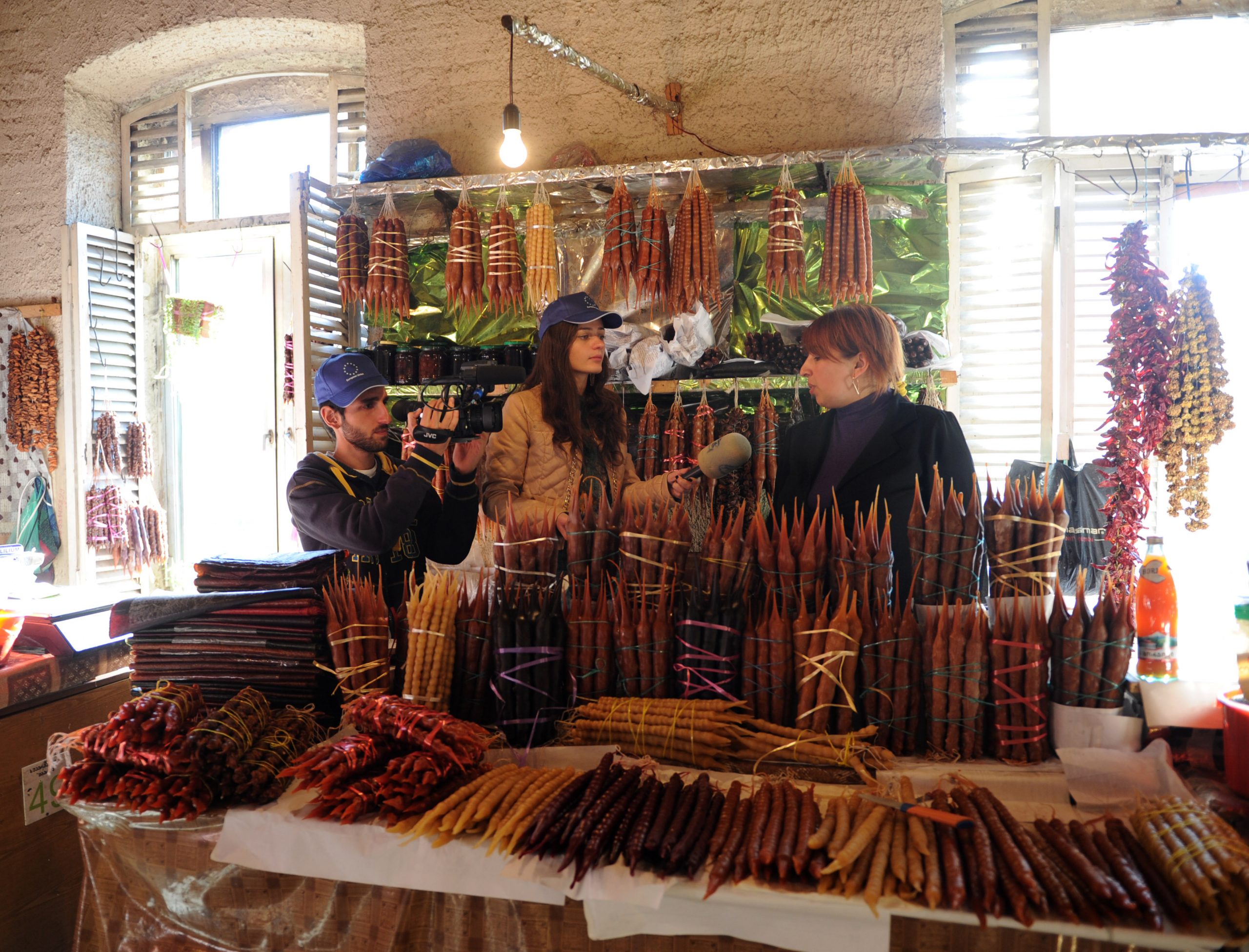
Six ENI targets
- Fostering human rights and fundamental freedoms, the rule of law, equality, sustainable democracy, good governance and a thriving civil society;
- Achieving progressive integration into the EU internal market and enhanced co-operation including through legislative approximation and regulatory convergence, institution building and investments;
- Creating conditions for well managed mobility of people and promotion of people-to-people contacts;
- Encouraging development, poverty reduction, internal economic, social and territorial cohesion, rural development, climate action and disaster resilience;
- Promoting confidence building and other measures contributing to security and the prevention and settlement of conflicts;
- Enhancing sub-regional, regional and Neighbourhood wide collaboration as well as Cross-Border Cooperation.
How support is given
- Bilateral programmes covering support to one partner country;
- Multi-country programmes which address challenges common to all or a number of partner countries, and regional and sub-regional cooperation between two or more partner countries;
- Cross-Border Cooperation programmes between Member States and partner countries taking place along their shared part of the external border of the EU (including Russia).
Priority areas
Some of the ENI cooperation areas that will be given high priority are:- Boosting small businesses;
- Civil-society engagement;
- Climate change action;
- Energy cooperation;
- Gender equality promotion;
- Gradual economic integration;
- People-to-people contacts;
- Transport connections;
- Youth and employment.
Involving Civil Society
From the ENPI to the ENI
ENP and Action plans
EU: a major donor
- Instrument for Pre-accession Assistance (IPA): €11,699 million
- European Neighbourhood Instrument (ENI): €15,433 million
- Development Cooperation Instrument (DCI): €19,662 million
- Partnership Instrument (PI): €955 million
- Instrument contributing to Stability and Peace (IfSP): €2,339 million
- European Instrument for Democracy & Human Rights (EIDHR): €1,333 million
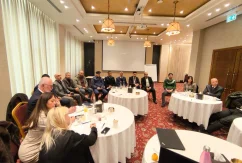

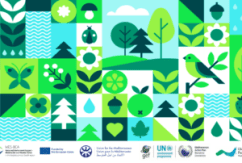
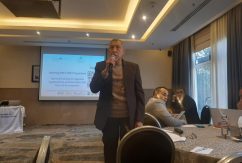

























 Syria
Syria 